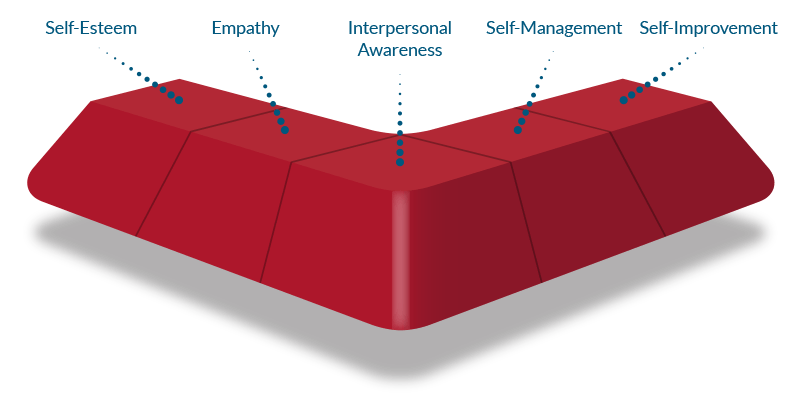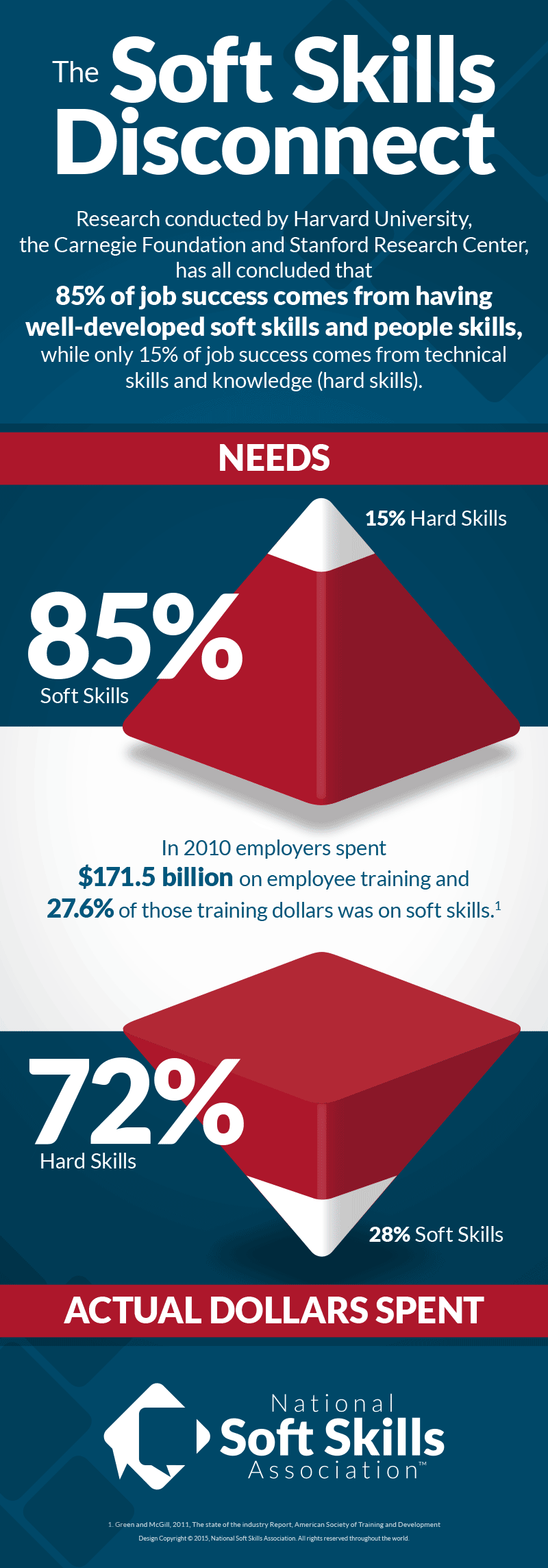
Research conducted by Harvard University, the Carnegie Foundation and Stanford Research Center has concluded that 85% of job success comes from having well-developed soft and people skills, and only 15% of job success comes from technical skills and knowledge (hard skills).
This research finds its beginning with the work of Charles Riborg Mann from a Study of Engineering Education in 1918. There is a span of almost 100 years since Mann published his findings. Has this research had any impact on our current day education and training programs?
Let’s take a look at some of the curriculum offerings at several of our post-secondary programs and see how they are incorporating these findings into their curricula.
- Applied Math-Welding
- Oxy Fuel Metals Joining
- Fabrication
- Shielded Metal Arc
- Gas Metal Arc
- Blueprint Reading
- Oxy-Fuel Metals Cutting
- Advanced Shielded Metal Arc
- Tungsten Inert Gas
- Applied Communication Skills
- Advanced Fabrication
- Advanced Gas Metal Arc
- Advanced Tungsten Inert Gas
- Advanced Blueprint Reading
As you can see, in this listing of courses for welders there is one course that deals with communication and the rest are all hard skills.
Let’s take a look at an Automotive Technology curriculum.

- Fasteners
- Bearings
- Precision Measuring Tools
- Heating and Cutting
- Hoists and Lifting Equipment
- Applied Computer Skills
- Engine Fundamentals
- Cylinder Block Assembly
- Cylinder Block Application
- Crank Shaft Assemblies
- Electrical Fundamentals
- Electronic Diagnostic Test Equipment
- Battery Fundamentals
- Electrical Circuits
- Applied Electrical Schematics
- Circuit Repair
- Electromagnetic Fundamentals
- Electronic Fundamentals
- Fuel System Fundamentals
- Intake and Exhaust Systems
- Emission Control Systems
- Clutch Assemblies
- Gear Theory
- Manual Transmissions
All the above courses are focused on hard skills.
Let’s take a look at one more—HVAC Technician

- Fundamentals of HVAC
- Industrial Construction
- Safety
- HVAC Piping
- Sheet Metal Fabrication
- Electricity Fundamentals
- Heating 1
- Air Conditioning 1
- Mechanical Code
- Heating 2
- Hydronics
- Air Conditioning 2
- Heat Pumps
In this program, there are also electives:
- Writing
- Communication
- Science
- Mathematics
Of the four electives, only one course could be considered a soft skill—communication.
Each program described in this report has a comprehensive set of technical courses to teach the hard-skill competencies of the trade, while soft skills were addressed in a few electives or not at all. One can easily see that the message about the importance of soft skills training is not being heard. Isn’t it time that technical training programs address both hard and soft skills in their programs? It has been 100 years since the 85% soft skills, 15 % hard skills concept has been identified for job success.






